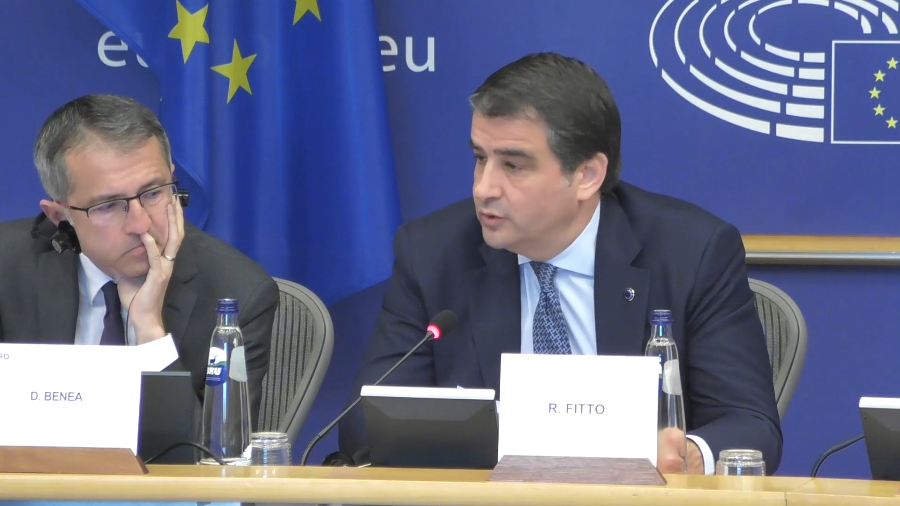Brussels – “There is no obligation” for using cohesion funds to support defence; however, in practice, as the Executive Vice President of the European Commission Raffaele Fitto shows, it pushes this to be the case. Defence “is a key industry for the future” because, on closer inspection, the head of Cohesion and Reform explained at a hearing in the Region Development Committee of the European Parliament that “defence does not mean war, but security and stability.”
Of the five new priorities for Europe identified by the EU executive to be financed by cohesion funds—competitiveness, defence, housing policies, water management and security, energy transition—none is imposed. Nonetheless, Fitto, on the one hand, insists on precedents and, on the other, on benefits. First, he scolds MEPs, “In the 2014-2020 cohesion cycle, we had 100 per cent spending, absorbing the emergencies we had from 2018: Covid, the war in Ukraine, floods, energy crisis.”
An emphasis, the latter, functional to the EU Commission’s intentions to use funds for the territories differently than initially planned because “the world changes,” he insists, referring to new geopolitical uncertainties and what comes with them. Secondly, there are the conditions under which this can be done.

“Investments in each of the five strategic priorities will benefit from pre-financing rates of 30 per cent,” Fitto stressed. It doesn’t end there: those who decide to change regional programs to invest in the new areas, the European Commission’s executive vice president continues, “will also benefit from an EU co-financing rate of up to 100 per cent,” and thus without burdening public budgets, whether central or local.
In short, “with cohesion money, you could not and will not buy weapons,” as Fitto repeats. However, you can still support the development of the productive fabric of the sector, and this is what the von der Leyen team continues to insist on through a continuous narrative and storytelling aimed at convincing of the need to rethink how to use the resources that are there since it’s difficult to find new ones. What is proposed, Fitto insists in his speech in the parliamentary committee, “means using incentives and possibly supporting infrastructure and production of dual goods” for civilian and military use. This is where cohesion policies can and, in the hopes of the EU Commission, should play a role in revitalizing European defence.
The “moral suasion” work conducted by Fitto is not limited to this but also includes timetables and roadmaps. In calling on central and regional governments to reconsider the use of cohesion funds, he urges them to do so “quickly” because “time is everything.” The College of Commissioners would like to have the revised plans by the end of the year so they can be operational by early 2026.
English version by the Translation Service of Withub
![Enrico Letta [Bruxelles, 3 aprile 2025]](https://www.eunews.it/wp-content/uploads/2025/04/letta-350x250.png)
![[foto: imagoeconomica, rielaborazione Eunews]](https://www.eunews.it/wp-content/uploads/2025/03/inflazione-difesa-350x250.png)




